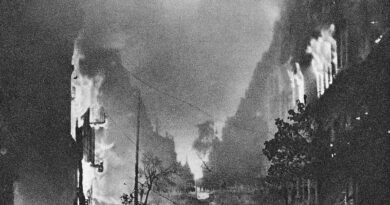Can the ongoing process of de-Christianization be stopped, if not in Europe, at least in Poland? (video)
The voices coming from conservative and Christian circles in former Eastern Bloc countries consistently tell us that gender ideology is totalitarian and has its origin in the very same Marxism that those countries experienced in the past. In that part of the world, it is no longer uncommon to hear that the European Union, to which those countries now belong, is increasingly resembling the former Soviet master.
Why the calls in today’s Poland to expunge theology from the universities? How can we not see a link between this new trend and the communists’ decision to shut down faculties of theology after the Second World War?
University culture in Europe was shaped by the development of theology, points out Professor Paweł Bortkiewicz, a Catholic priest who for many years was the Dean of the Faculty of Theology at Adam Mickiewicz University in Poznań, in a discussion with Paweł Lisicki, editor-in-chief of the influential conservative weekly Do Rzeczy.
Their conversation goes on to address the broader issue of increasing attacks against the Christian religion in Poland, the rise in influence of neo-Marxist ideologies, the truly totalitarian nature of gender ideology, the role of the European Union and its shift away from its Christian roots towards communist ideas (Altiero Spinelli’s Ventotene Manifesto), and, last but not least, the issue of whether or not Poles were tricked into joining the European Union in the early 2000s with false promises that their Christian values would be respected.
Professor Bortkiewicz, who in 2021 was awarded the Officer’s Cross of the Order of Polonia Restituta by President Andrzej Duda for his outstanding achievements in the fields of education, science, culture, and social work, recalls how, before the referendum on EU accession in 2003, EU politicians convinced the Poles that Europe needed Poland and its Christianity.
“After 2003, the narrative radically changed,” he says. “We heard that as young Europeans we needed to learn from Europe what democracy means, what freedom means, what human rights are. This change of tone was extremely cynical, but was also extremely painful.”
Towards a European superstate – The “integration engine” in action
Polish co-rapporteur warning against European Parliament resolution on treaty reform (interview)



